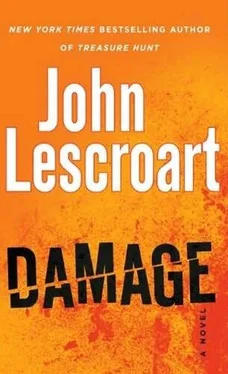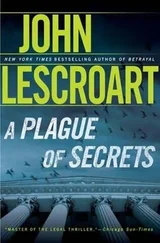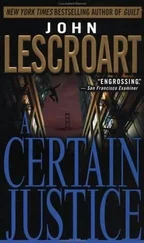“Where’re we goin’?” Ro asked.
“Just taking a little detour. Too much traffic up here.”
Heading south now, they stayed on Fillmore as it morphed in only a few blocks from a well-traveled, high-end shopping street to a nearly empty thoroughfare through one of the city’s ghettos. Eztli, already driving slowly, slowed further at each corner while he checked the traffic on the cross streets. Turk Street was deserted in both directions, and he suddenly turned right, continued about halfway down the block, then pulled over and came to a stop.
“What now?” Ro asked.
“I’m tired of this guy. You tired of this guy?”
“I’m tired of all of ’em.”
“Okay, then. You see anybody?”
“Where?”
“Anywhere.”
Ro spun around, checked the sidewalks, the street itself. “No.”
Eztli nodded. “Me, neither.”
Behind them, Matt Lewis had pulled over as well and put the car into park, but he hadn’t quite decided what he was going to do. There was no point in following these clowns all over the city so long as they knew he was following them. Amanda’s original idea, sprung on her own initiative, had been to see if they would lead him back to any of their suspected crime scenes or to her missing witness, Gonzalvez. Or, failing that, to someplace where they simply did something else illegal, and then he could call in the troops and arrest them again. They both had figured, given who these guys were, it wouldn’t take too long.
But now when Matt Lewis looked up, he saw Eztli coming again around the back of his car. Impatient now with the absurdity of this situation, he’d just about decided to drive around them and come back another day. But now here came the Aztec in his Raiders jacket, looking like he had something to say. So Lewis lowered his window and leaned his head outside. “What now?”
Eztli was almost up to him, his face placid, even apologetic. “Oh,” he said. “Nothing much. I just forgot…” With no further warning, he brought his gun around from where he’d been holding it out of sight, and in one fluid movement pressed it up close to Matt Lewis’s head and pulled the trigger.
Dismas Hardy’s suggestion to have the grand jury indict Ro Curtlee on a no-bail multiple-murder charge had grown on Farrell all day as he prowled the offices on the third floor of the Hall of Justice, taking the pulse of his staff.
When he’d started on his rounds, he still didn’t quite trust that he was contemplating the right decision. Indeed, when he’d first heard about the Nuñez killing, he’d considered and rejected the grand jury solution for what he thought had been sound reasons: that he’d only have sixty days to bring Ro to a trial that would probably not convict him; that his acquittal on that charge would make it much more difficult to bring him back to a retrial in his initial case; that in any case, he’d be out on bail again in another couple of months. He could have asked the court to join the cases for trial, but he couldn’t count on having that motion granted. And if the cases had been kept separate, it would have been a train wreck.
But that was before Janice Durbin.
With that murder, Farrell’s personal priorities had evolved. He’d finally come to believe that keeping Ro behind bars was a valid end in itself, for no matter how long a time. If he could get the grand jury to indict, he’d take sixty days as a good start and work on getting more jail time from there-try to move up the retrial date, work on Baretto and Donahoe to revisit their bail decisions, whatever it took.
The lawyers on his staff were generally a bunch of hard-core prosecutors, and the events of the past few days, particularly Ro’s bail hearing, had cut into the team’s morale in a big way. Now Farrell’s suggestion that he circumvent the judges’ rulings met only with untainted enthusiasm. Finally he was the boss and acting like it.
Taking charge.
Not one of Farrell’s assistant district attorneys had any doubt about Ro’s guilt, both originally on the rape and murder charges at his trial, and then with the two latest victims-Felicia Nuñez and Janice Durbin-and all of them seemed to believe that the grand jury idea was legal and liable to conclude with Ro sitting in a jail cell where he belonged.
Now, closing in on five o’clock, having made his decision, Farrell called his own task force together. If he was going to go to the grand jury, he needed to know everything relevant that anyone could give him on Ro Curtlee. His office continued to be logistically challenged, however, and so he had his invitees seated willynilly, Medical Examiner John Strout and Police Chief Vi Lapeer on the couch, Arson Inspector Arnie Becker on an ottoman, Glitsky and Amanda Jenkins on a couple of folding chairs brought in from Treya’s office.
Farrell himself sat on the sturdy oak library table. After he asked them to turn off their cell phones and then thanked everyone for coming at his summons, he got down to it. “I think it’s pretty clear with this Durbin homicide that Ro’s taking this time out of jail as an opportunity to pay back some of the people who helped put him away in the first place.
“Abe and Amanda, I know you’ve both argued that same thing right from the start, and I want to apologize to both of you for not making a stronger case against bail in the first place. You were both right. I was wrong.
“And for the record, Abe, your instincts were also right about trying to arrest him for the threat against you. Even if you’d waited and gotten a warrant, I believe Her Honor Erin Donahoe would have done what she did, bail-wise. So now the situation really couldn’t be clearer-if we’re going to override these bail decisions, and we must-we’ve got to get him indicted, and I mean yesterday, for no-bail murder.
“So”-he spread his palms, supplicating-“I need you all to help me. I know we’ve got the shoes on both victims, we’ve got the connections and motivations related to his trial, the fire in both cases. None of which, I’m sorry to say, rises to the level of convincing evidence. It might work for the grand jury if I tap-dance enough around the related motives, but it would be nice to have something else in the line of evidence since we’re going to get huge media on this, and I’m predicting they’re not going to give us a pass just ’cause we’re the good guys.”
For a moment, no one spoke.
Glitsky looked at Becker, over to Amanda, back to Farrell. “That’s all we’ve got, Wes. Except they were all strangled and naked except for the shoes. But that’s not enough evidence, either.”
All of the people in the room knew the extent to which the grand jury was a prosecutor’s tool. There was no judge at the proceedings and no defense attorneys allowed to refute or even argue against any of the DA’s assertions. Still, although the standard of proof was low, it was in theory nevertheless based on evidence. And so far they didn’t have much.
“How about witnesses?” Farrell asked. “Arnie?”
“On Nuñez, we have two people over on Baker who saw a car like Ro’s around the corner. Probably the same car. And no, they didn’t catch or notice the license number, and nobody saw him get in or out of it. Otherwise, pretty much zero.”
“How about the same car at the Durbin site?”
Becker shook his head. “Not yet. Still canvassing, but I’m not holding my breath.”
Farrell let out a disappointed sigh. “John?” he asked.
The ancient doctor scratched at his white hair. “I know y’all been talking about rape an’ hopin’ to pick up some DNA, but the Nuñez woman was too burnt for any analysis whatever. Wasn’t anything like fluid left to test. And Durbin, best I can tell, there wasn’t any rape at all. Although I did, I told Arnie here this morning, I did find that she had a dose of chlamydia. The bottom line is that there’s nothin’ I can point out proves either one of’em was raped at all. So I wouldn’t be comfortable putting that in your MO.”
Читать дальше












